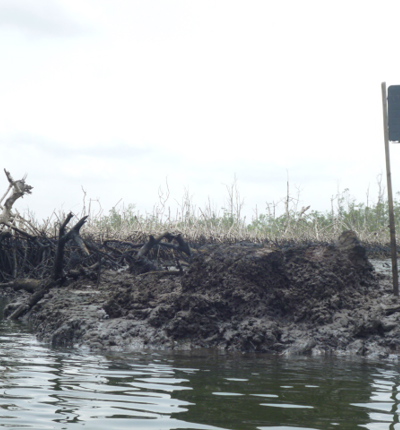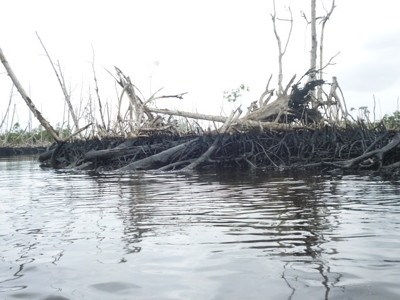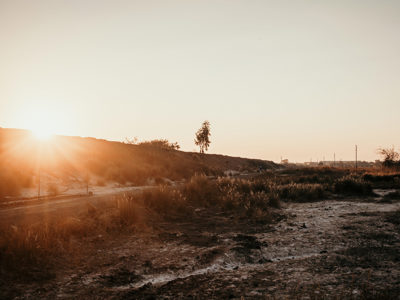
Breakthrough for Nigerian community in Shell pollution case as High Court orders the oil giant to disclose documents it has been withholding for more than two years
The High Court has ordered Shell Plc (the UK based parent company) and its Nigerian subsidiary, Shell Petroleum Development Company of Nigeria Limited (SPDC) to disclose documents that the court says could relate to the company’s liability for oil spills between 2011 to 2013 that devastated the Bille community’s land.
Posted on 08 March 2024
Members of the community requested that Shell release technical and scientific records of its oil operations in the region in order to shed light on who was responsible for the spills.
However, Shell repeatedly resisted these requests and contested all disclosure requests directed towards its UK based parent company, Shell Plc. Despite the almost 10 years that have passed since the Bille and Ogale communities’ claims started, the oil giant argued that Shell Plc “should not be obliged to search for or disclose any documents”.
Since a Supreme Court ruling in 2021, the legal team for the communities has been preparing for trial in the High Court in London which is now expected to take place from 2025 onwards. Shell have served their legal Defence, in which they argue that they have no legal responsibility whatsoever for any of the pollution, despite the fact that the communities continue to live with chronic levels of oil pollution caused by Shell’s operations.
In a judgment handed down today, the judge noted that there was evidence that Shell’s publicly available reports on its investigations into spills (JIV reports) are “inaccurate” and unreliable. Notably, the judge stated, “I asked [Shell’s barrister] during the course of the argument whether the Defendants were satisfied that their recording systems accurately recorded events of oil contamination into the Bille region; she was unable to confirm that.”
The court therefore ruled that both Shell Plc and SPDC must search for relevant documents and has confirmed that Shell does have documentation which could help the court to determine questions about “contamination, consequences and causes” in Bille from 2011-2013, the period in relation to which the claims are brought.
The judge has ruled that a preliminary issues trial to determine principles of Nigerian law affecting the claims will take place first in early 2025. A factual trial, examining oil contamination of the Bille area over the period 2011-2013 will follow in the latter part of the year and it is anticipated that a trial relating to the Ogale claims will take place afterwards.
The Bille and Ogale communities, who are mostly subsistence farmers and fishermen, have been left in the dark about Shell’s historic oil spill investigations, remediation processes, and the company’s subsequent sell-off of assets and withdrawal from the region. Records such as SPDC’s Annual Asset Integrity Status reports are expected to indicate what condition the pipelines were kept in and, in turn, where particular spills would have emanated from, and when the spills would have occurred.
Leigh Day international department partner Matthew Renshaw said:
“This judgment signals a major development for the Bille community, and it is anticipated that Shell’s documents will play a key role in helping them to identify the sources of the oil pollution that have devastated their land and livelihoods. For too long, the communities in the Niger Delta have had to fight against a multi-national oil giant to establish who is responsible for this pollution and to get it cleaned up. We hope this judgement will lead to significant progress towards the justice that the members of the Bille community and others in the region deserve.”

‘Selling out Nigeria’ – SOMO’s investigation of Shell’s divestment in the Niger Delta
Partner, Matthew Renshaw and Alice Grist from Leigh Day’s international department examine concerns that Shell’s plans to sell off its Nigerian oil business could result in it leaving the Niger Delta without addressing years of chronic oil pollution in the region.

Kabwe lead poisoning Claimants remain committed to securing justice as they seek leave to appeal in case against Anglo American South Africa
Claimants have filed an application for leave to appeal a December judgment that dismissed the certification of a class action on behalf of an estimated 140,000 Claimants, effectively blocking their access to justice.


